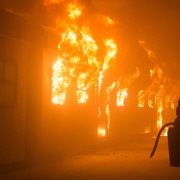|
Getting your Trinity Audio player ready...
|
By Kwazi Dlamini
Corruption and incompetence. These are the foremost concerns that haunt those affected by the Zimbabwe exemption permits (ZEPs) saga that became the subject of recent media reports over the scrapping of the rights associated with the document by the Department of Home Affairs last month.
The specialised permits for nationals of the neighbouring country – which have been in place for 12 years – expired on 31 December 2021, with an announcement by Home Affairs Minister Aaron Motsoaledi just days before that holders of ZEPs would be granted a 12-month grace period to apply for an alternative means to regularise their stay in South Africa. Failure to do so opens the holder up for possible deportation.
Under different circumstances, the grace period would give applicants enough time to explore other avenues. However, as previously reported in the media and through interactions with many who are affected, corruption is rife within Home Affairs and hampers the department’s immigration function severely. Those affected by this development fear that it’s in this period that they will become open and vulnerable to exploitation and extortion at the hands of shameless department officials as well as those who assist in their corrupt practices.
One individual directly affected by the termination of the ZEPs spoke to Corruption Watch (CW) on condition of anonymity, confirming that this might be the most stressful for year ZEP holders.
“It is hard to rely on the effectiveness of Home Affairs, especially when you are given an ultimatum, but we are hopeful, and of course people might be forced to grease a few hands to get their papers sorted out in time. It is unfortunate but that is the nature of the situation”.
Having lived in South Africa for over 10 years, mostly working as a waitress to support her young son, Susan* is worried that she might be deported come the end of the grace period, because she is not a critical skills worker and she cannot afford to pay bribes to get a different permit.
Zanele*, another Zimbabwean national living and working in South Africa, is still in disbelief over the decision not to renew the permits. She is, however, still confident that the two governments will find common ground and come up with a solution.
She too flags the issue of corruption to CW, and how applying for the permits is going to open the flood gates for extortion, because people are desperate and afraid to leave their families and the lives they have created for themselves here.
“A year is enough for people to apply for new permits, but even South Africans can spend weeks going to Home Affairs to apply for an identity document. The situation is not promising, and the officials will delay the process until people have no other option but to pay them thousands of rands in bribes,” Zanele adds.
To her, it is unclear why the permits were not renewed as they previously were, but she believes the decision might be political. Lobby groups representing Zimbabwean nationals affected by the decision took the matter to court on an urgent basis, in an attempt to get Motsoaledi’s decision overturned. The North Gauteng High Court, however, dismissed the application, upholding the department’s view that it was not urgent. The department responded to the court’s decision through a statement, with Motsoaledi acknowledging that he anticipates more litigation on the matter.
A CW report released in 2016 titled Project Lokisa: Asylum at a Price, highlighted the extent of corruption that many asylum seekers were allegedly subjected to on a daily basis at immigrations sites across the country.
While the report focused on a different category of immigrants, the current situation with Zimbabwean nationals has the potential of thrusting the just under 200 000 applicants into the same level of vulnerability as asylum seekers interviewed then. The report laid bare the inner workings of networks consisting of officials, runners and facilitators who prey on those seeking assistance from the department by extorting large amounts of cash to get through different phases of their application process. At the time, Project Lokisa found that, “No person gets access into the gates of Home Affairs if they do not pay R100 for bribery, anything more that lets you jump the queue.”
For many people like Susan and Zanele, the disgraceful scenes described in the report may end up becoming a reality.
*Not their real names








